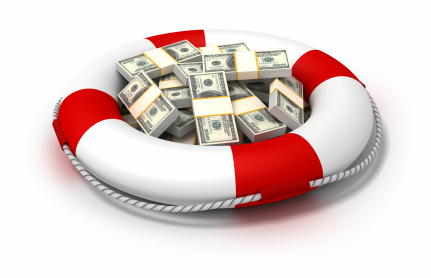By Joel Dresang
My phone rang at 11:06 on a Sunday night. I glanced at an unfamiliar number from an area code I didn’t recognize. Spam, I thought. So, I ignored it.
Then it occurred to me that the call could be from a bank. My wife and I were at a hotel in Brazil, on the final leg home from a family trip. The last time we traveled abroad, crooks made off with my debit card. Who but bank detectives would be trying to reach me now?
The next morning, I had voicemail from our credit union.
Someone had made a copy of my debit card and tried to withdraw $300 from a Bank of America ATM in Westminster, Calif., and then $500 from a BMO Harris ATM in Huntington Beach, Calif., about 20 minutes south.
I had given the credit union advance notice of our trip to South America. When they saw someone using my debit card in North America, they figured something was up.
On the phone Monday morning, I verified that I hadn’t been in California. (In fact, the beach we were near was on a different ocean.) The fraud center agent said he would make a note and cancel my debit card. I’d have to arrange getting a new card, but it didn’t cost me the $800 in attempted withdrawals.
This tale of identity theft and financial insecurity shouldn’t surprise anyone. Criminals are scheming to take our money every which way we turn. But my experience is instructive.
– Bob Landaas, at the 2023 Investment Outlook Seminar in September. (Click here to view a Money Talk Video of the seminar.)
As consumers – and as investors – we need to be vigilant. We must pay attention to what’s going on around us, be careful with what we do and say, and regularly review our receipts and account statements. The other point, though, is that vigilance alone will not guarantee us protection. We need someone else in our corner.
In the office a few weeks ago, we had an all-staff meeting, at which news of a recent data theft prompted lively discussion. At issue was a cyberattack that permitted hacking of personal information about millions of customers of a large pension fund and a life insurance company. Talk around the table centered on what protections Landaas & Company provides clients. So, even if someone gains unauthorized knowledge of a client’s private information, they’d have a hard time using that information to steal assets from that client’s accounts.
To begin with, Landaas advisory teams know their clients, which makes it harder for identity thieves to get away with clients’ money. When an associate or advisor gets a request, they contact the client directly for verification. If the request seems out of the ordinary or involves a substantial sum, they might further scrutinize the transaction and ask the client what the money will be used for.
If they can’t reach the client and something seems suspicious, they’ll get a hold of the trusted contact designated by the client. The designee is an emergency contact who could help determine whether the client is available and whether the request in question makes sense – without being given account information or details of the request.
“It’s just so that we have another person in case we have concerns about financial exploitation, if there’s diminished capacity, if something starts to happen,” says Lauren Neese. “We’re interested in protecting your assets. These are your life savings.”
Another way Landaas & Company prevents fraud is by refusing to send money to accounts or addresses not already established by the client. If a client changes addresses, they have to wait 15 days for the change to take effect.
“It’s super important to keep us updated on any changes so that we’re aware,” Lauren says.
Besides being vigilant and staying in touch with their advisory team, clients can help protect their money by asking Landaas & Company to block their accounts, locking out unauthorized requests. That would alert the firm to possible fraud, just as my travel notification tipped off our credit union to illicit use of my card in California.
Other Money Talk articles from Joel Dresang
As best as I can figure, my card got duplicated and my authorization code stolen through a scheme known as skimming. The only place I had used my card was at an ATM in the Sao Paolo airport. So, it wasn’t my fault that my personal financial information was compromised. More importantly, we were just fortunate we had someone watching out for us.
Joel Dresang is vice president-communications at Landaas & Company.
How to protect yourself from identity theft
- Do not answer phone calls, texts, social media messages, or email from numbers or people you do not know.
- Do not share personal information like your bank account number, Social Security number, or date of birth.
- Collect your mail every day and place a hold on your mail when you will be on vacation or away from your home.
- Review credit card and bank account statements. Watch for and report unauthorized or suspicious transactions.
- Understand how ATM skimming works and how to protect yourself
- Learn when it is safe to use a public Wi-Fi network
- Store personal information, including your Social Security card, in a safe place. Do not carry it in your wallet.
– USA.gov
Learn more
Trusted Contacts, from the Financial Industry Regulatory Authority
Identity Theft, from USA.gov
IdentityTheft.gov, from the Federal Trade Commission (for reporting and recovering from identity theft)
Identity Theft, from the Federal Trade Commission
(initially posted Oct. 5, 2023)
Not a Landaas & Company client yet? Click here to learn more.
More information and insight from Money Talk
Money Talk Videos
Follow us on Twitter.
